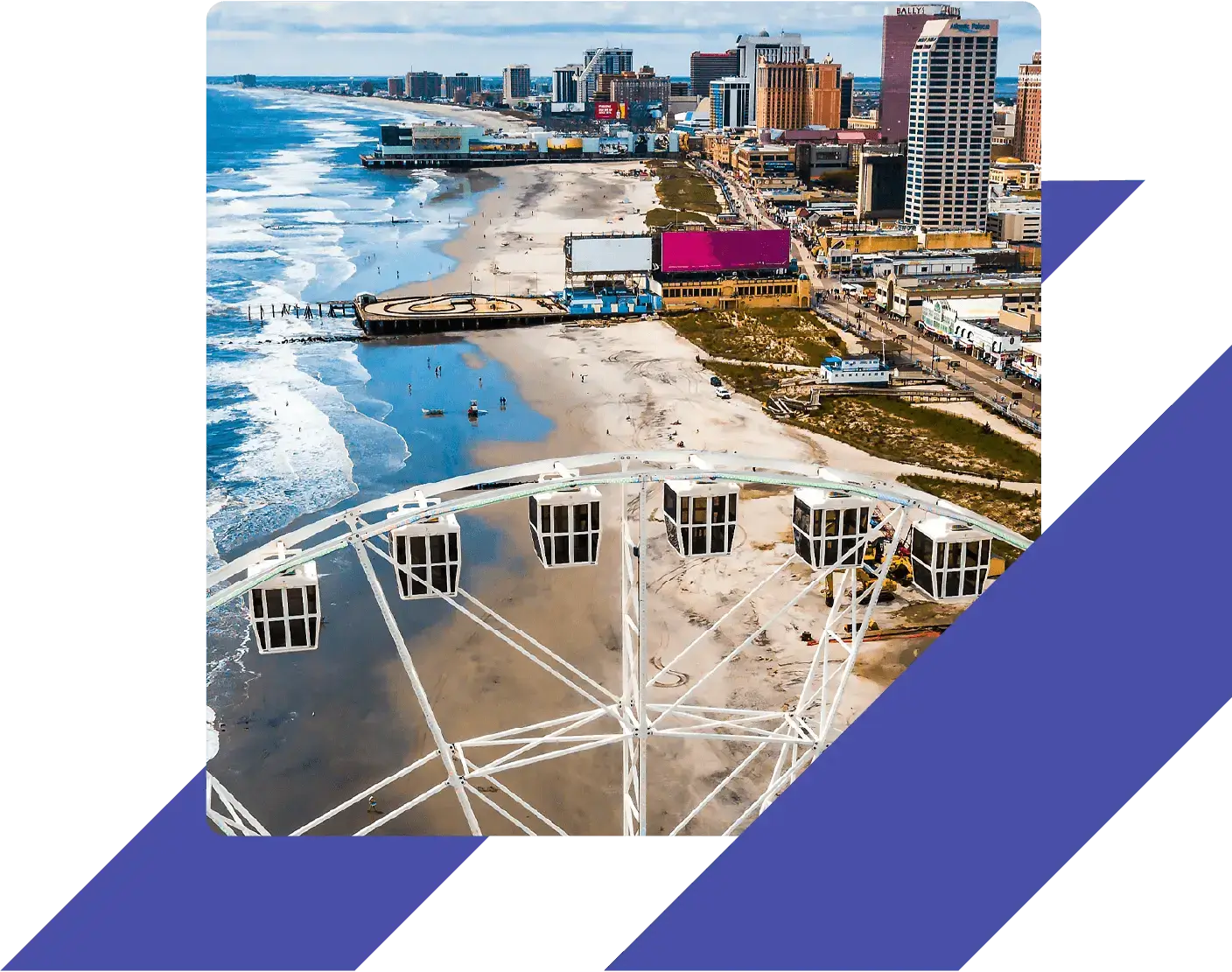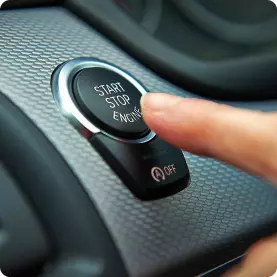New Jersey DWI Laws: Guide to Drunk Driving Charges and Penalties
New Jersey enforces some of the strictest DWI laws in the nation, with a 0.08% blood alcohol content (BAC) limit for drivers 21 and older. Recent legislative updates are enhancing ignition interlock device requirements and strengthening penalties for repeat offenders. The state is deeply focused on reducing recidivism rates and enhancing road safety through comprehensive administrative and criminal consequences.

Getting Started
If you’re arrested for a DWI in New Jersey, you face a complex legal process with both administrative and criminal consequences. These two processes operate independently but can overlap or run consecutively depending on the circumstances of your DWI.
New Jersey applies severe penalties even for first-time DWI offenses; however, the state also implements a robust ignition interlock device program to help reduce the likelihood of repeat drunk driving convictions.
Important Note: While this page provides detailed information about New Jersey DUI laws, DUI.org does not offer legal advice. Laws can change, so consult a qualified DWI attorney for personalized guidance.
Definitions to Know
DWI
In New Jersey, this refers to Driving While Intoxicated by alcohol. New Jersey uses the term “DWI” for alcohol-related offenses and “DUI” for drug-related impairment.
IID (Ignition Interlock Device)
A breathalyzer installed in a vehicle to prevent it from starting if alcohol is detected on your breath.
IDRC (Intoxicated Driver Resource Center)
Facilities that provide mandatory education, evaluation, and treatment services for people convicted of DWI in New Jersey.
New Jersey Motor Vehicle Commission (MVC)
The Garden State’s MVC handles administrative license suspensions, restricted license applications, IID oversight. The MVC works alongside the court system but handles the administrative penalties related to your driving privileges.
Steps to Take After DWI Arrest in New Jersey
- Hire an Attorney
Legal counsel can help navigate both Department of Safety administrative processes and criminal proceedings in Tennessee’s court system.
- Address License Suspension
Expect your driver’s license to be suspended based on the severity of the offense. In New Jersey, this happens quickly after arrest.
- Request an Administrative Hearing
If you dispute a suspension, you must request a hearing with the New Jersey MVC within the appropriate timeframe.
- Apply for a Restricted License
If eligible, you may apply for limited driving privileges by installing an ignition interlock device through the New Jersey MVC.
- Install an IID
A car breathalyzer is required for certain offenses in New Jersey, especially for high-BAC convictions or repeat offenses.
Explore IIDs - Complete Substance Abuse Evaluation and Treatment
Attend evaluation and complete recommended programs through approved New Jersey IDRC providers.
- Pay Fines and Fees
You’ll need to pay court fines plus other fees, such as license reinstatement and state surcharges.
- Complete DWI Education Program
Mandatory alcohol education courses are required in New Jersey following a DWI conviction.
- Attend Court Proceedings
Your case will proceed through New Jersey’s municipal court independently from administrative actions.
- Avoid Further Violations
Whether you’re on probation, using a restricted license, or have just had your license reinstated, any new DWI or license violation can lead to severe penalties including jail time and longer suspensions.
Expert DUI Attorneys in new jersey
An experienced DUI attorney can help guide you through the process and represent your interests in court. If you are unsure how to find an attorney, we partner with several in your area.
DWI Laws in New Jersey
What Are the Legal Driving Alcohol Limits in New Jersey?
In New Jersey, it’s illegal to drive if you’re under the influence of alcohol, drugs, or both. New Jersey has established clear BAC limits that vary by driver category.
| Driver Category | Legal BAC Limit |
| Drivers 21 and older | 0.08% |
| Commercial drivers | 0.04% |
| Drivers under 21 | 0.02% |
Traffic Violation vs. Criminal Offense DWI Charges in New Jersey
In New Jersey, most first and second DWI offenses are classified as traffic violations rather than criminal offenses. However, certain circumstances can elevate a DWI to a criminal charge.
A DWI becomes a criminal offense in New Jersey if:
- It’s your third or subsequent offense
- The DWI caused serious bodily injury to another person
- The DWI resulted in death
- You were driving with a suspended license for a previous DWI
Criminal DWI convictions carry much harsher penalties, including longer jail sentences, higher fines, and extended license suspensions compared to traffic violations.
Does New Jersey Offer Drunk Driving Diversion Programs?
New Jersey does not offer traditional diversion programs that eliminate DWI convictions. However some counties may provide alternative sentencing options and treatment programs through the Intoxicated Driver Resource Center (IDRC) system.
New Jersey’s IDRC Program
New Jersey’s IDRC program is mandatory for all people convicted of DWI and focuses on education, evaluation, and treatment. When the court orders you into this program, you must:
- Complete an evaluation to determine your level of alcohol or drug involvement
- Attend education classes or treatment programs as recommended
- Pay all associated fees and complete all requirements
The IDRC program is available for both first-time and repeat DWI offenses and is designed to address the underlying issues that lead to impaired driving.
Refusing a Chemical Test Under New Jersey DWI Law
New Jersey enforces an implied consent law. When you drive in New Jersey, you automatically consent to chemical testing if an officer suspects you of driving under the influence. Refusing a test in New Jersey carries serious administrative penalties that can be equal to or greater than the penalties for a high-BAC conviction.
DWI Penalties & Consequences
Penalties for DWI Offenses in New Jersey
Penalties for DWIs in New Jersey become progressively severe with each conviction and vary based on your BAC level and whether anyone was injured.
1st Offense (0.08-0.10% BAC)
Jail Time: Up to 30 days
License Suspension: 3 months
IID Requirements: 6 – 12 Month
1st Offense (0.10%+ BAC)
Jail Time: Up to 30 days
License Suspension: 7-12 months
IID Requirements: 6 – 12 Month
2nd Offense
Jail Time: 2-90 days
License Suspension: 2 years
IID Requirements: 1-3 years
3rd Offense
Jail Time: 180 days
License Suspension: 10 years
IID Requirements: 1-3 years after restoration
Aggravating Factors That Increase New Jersey DWI Penalties
In New Jersey, these aggravating factors lead to elevated criminal charges, harsher fines, longer jail or prison time, extended license suspensions, and additional requirements:
- Having a passenger under 17 years old in the vehicle
- Causing bodily injury to another person
- Extremely high BAC levels (0.15% or higher)
- Driving under the influence in a school zone
- Previous DWI convictions within a 10-year period
- Refusing to submit to chemical testing
- Driving with a suspended or revoked license
Driving Without a Valid License
Driving with a suspended license in New Jersey is a serious offense that can complicate your legal troubles. If you are caught driving while your license is suspended for a DWI, you could face:
- Criminal charges
- Additional license suspension time
- Possible jail time (10-180 days mandatory)
- Steep fines
- Ineligibility for a restricted license
- Increased insurance rates
- Potential vehicle impoundment
Aggravating factors and/or license violations make it more difficult for you to recover from your original DWI. These issues will extend the timeline for getting your full driving privileges restored. Courts and the MVC take these violations very seriously in New Jersey, and they can reset much of your progress toward license reinstatement.
License Suspension
Who Determines if You Can Continue Driving After a DWI
In New Jersey, two separate entities determine your driving privileges after a DWI:
New Jersey Motor Vehicle Commission (MVC)
Handles administrative license suspension based on either test failure (BAC over the legal limit) or test refusal. This process is separate from court proceedings and happens quickly after arrest.
New Jersey Municipal Courts
As part of criminal sentencing, the court may impose additional license suspension or restrictions beyond what the MVC has already administered.
The administrative suspension through the MVC occurs independently of your criminal case, meaning you could have your license suspended even if your criminal DWI charges are later reduced or dismissed.
How Long Will Your License Be Suspended?
Getting your license suspended in New Jersey means you are no longer allowed to drive a vehicle, unless you obtain a temporary or restricted license during your suspension. Here’s how long your regular license may be suspended for a DWI in New Jersey:
| Offense | Suspension Duration |
| 1st Offense (0.08-0.10% BAC) | 3 months |
| 1st Offense (0.10%+ BAC) | 7-12 months |
| 2nd Offense | 2 years |
| 3rd Offense | 10 years |
| 1st Breath Test Refusal | 7-12 months |
Steps to Reinstate Your License
To reinstate your driver’s license after a DWI suspension in New Jersey, you must:
- Serve your full suspension period
- Pay reinstatement fees to the New Jersey MVC
- Complete required IDRC education or treatment programs
- Install an IID if mandated by court or administrative order
- Pass any required written or driving tests
Restoring Your Driving Privileges
After a DWI conviction in New Jersey, there are specific paths to regaining some or all your driving privileges. These options vary based on your offense history, compliance with court orders, and willingness to meet strict requirements.
How to Apply for a Restored Driver’s License
To apply for a restored driver’s license in New Jersey, you must:
- Completed your suspension period
- Install an IID on your vehicle
- Complete any required IDRC assessment or education programs
- Submit application to the New Jersey MVC and pay applicable fees
- Possibly appear for an interview or hearing
New Jersey Ignition Interlock Device (IID) Requirements
New Jersey has strict IID requirements for DWI offenders. An ignition interlock device prevents your vehicle from starting if it detects alcohol on your breath.
Key requirements include:
- Installation in all vehicles you operate (with some exceptions)
- Regular maintenance and calibration
- Compliance with all program rules
- Payment of all installation and monthly fees
- Regular monitoring and reporting
- No attempts to tamper with or circumvent the device
The device must be installed by a certified provider, and you must present proof of installation to the New Jersey MVC to qualify for a restored license or license reinstatement.

Selecting the right ignition interlock provider can make a world of difference.
Substance Abuse Evaluation and Treatment
New Jersey requires DWI offenders to undergo substance abuse screening, assessment, and potentially treatment through the IDRC system. This typically involves:
- Initial screening through an approved IDRC provider
- Professional assessment of substance use patterns
- Treatment recommendations based on assessment results
- Completion of required education or treatment programs
- Documentation of completion for the court and MVC
New Jersey’s approved substance abuse education programs are designed to address alcohol and drug use issues and prevent future DWI incidents. The length and intensity of programs vary based on your assessment results and offense history.

Understand what to expect and how to prepare for a substance abuse evaluation.
FAQs About DWIs in New Jersey
What is the BAC limit in New Jersey?
New Jersey has a 0.08% BAC limit for drivers 21 and older, 0.04% for commercial drivers, and 0.01% for drivers under 21.
How long will a DWI stay on your record in New Jersey?
A DWI conviction remains on your driving record permanently in New Jersey and cannot be expunged.
Can you refuse a breathalyzer test in New Jersey?
You can refuse, but New Jersey’s implied consent law means automatic license suspension and penalties equal to or greater than a high-BAC conviction.
Will you need an ignition interlock device after a DWI in New Jersey?
Most DWI convictions in New Jersey require an IID, with the duration depending on your BAC level and offense history.
How much does a DWI cost in New Jersey?
Between fines, surcharges, IID fees, IDRC costs, increased insurance, and other expenses, a first-time DWI typically costs $10,000 or more.
Sources
- New Jersey Office of the Attorney General. (2005). DWI penalty table. https://www.nj.gov/lps/dcj/agguide/dwi2005-penaltytable.pdf
- New Jersey Motor Vehicle Commission. (n.d.). Motor Vehicle Commission. https://www.state.nj.us/mvc
- FindLaw. (n.d.). New Jersey DWI laws. https://www.findlaw.com/state/new-jersey-law/new-jersey-dwi-laws.html
- National College for DUI Defense. (n.d.). New Jersey DWI laws. https://www.ncdd.com/new-jersey-dwi-laws
- New Jersey Motor Vehicle Commission. (n.d.). Suspensions & restorations. https://www.nj.gov/mvc/license/suspension.htm
- New Jersey Office of the Attorney General. (n.d.). Division of Highway Traffic Safety – Impaired driving. https://www.njoag.gov/about/divisions-and-offices/division-of-highway-traffic-safety-home/division-of-highway-traffic-safety-impaired-driving/
- New Jersey Motor Vehicle Commission. (n.d.). Breath alcohol ignition interlock device program. https://www.nj.gov/mvc/business/breathalcohol.htm
- Rutgers Center for Alcohol Studies. (n.d.). Licensed treatment directory. https://njsams.rutgers.edu/TreatmentDirectory/License
Get support.
What is next? We can help you through the process. Give us a little information and we can support you through the next steps.
All fields are required.